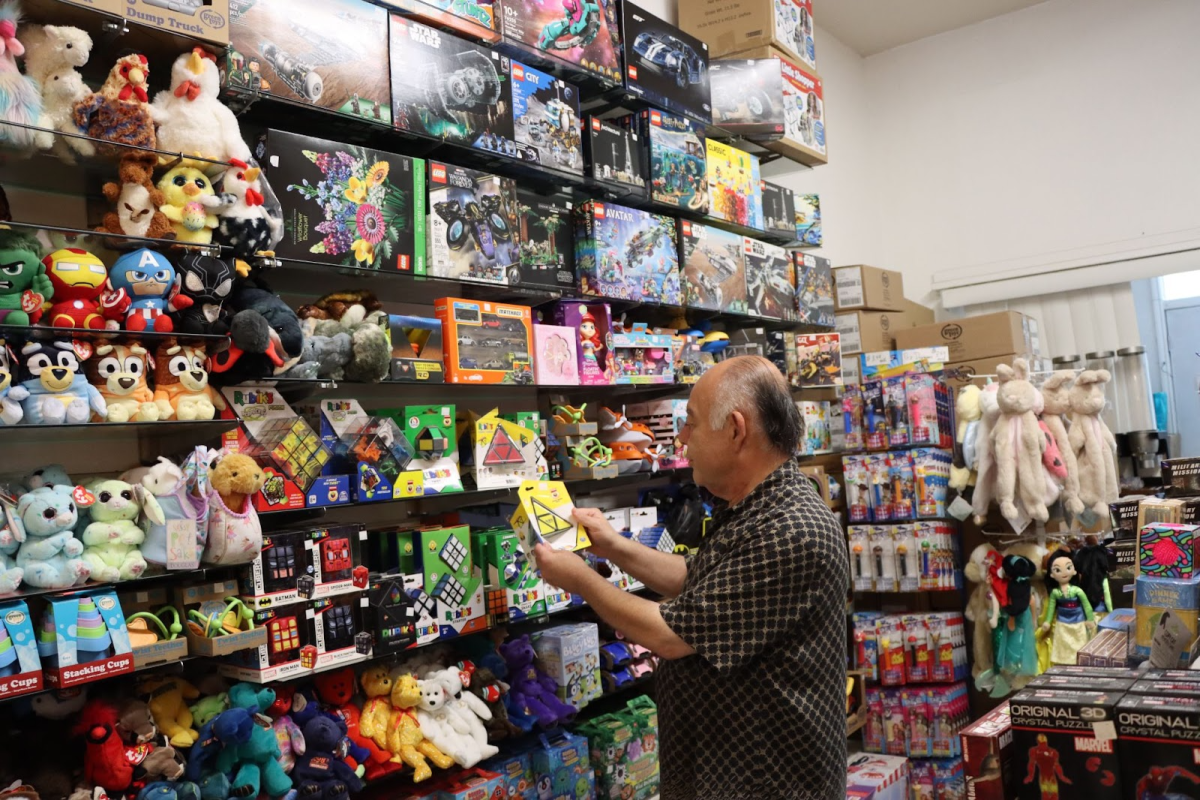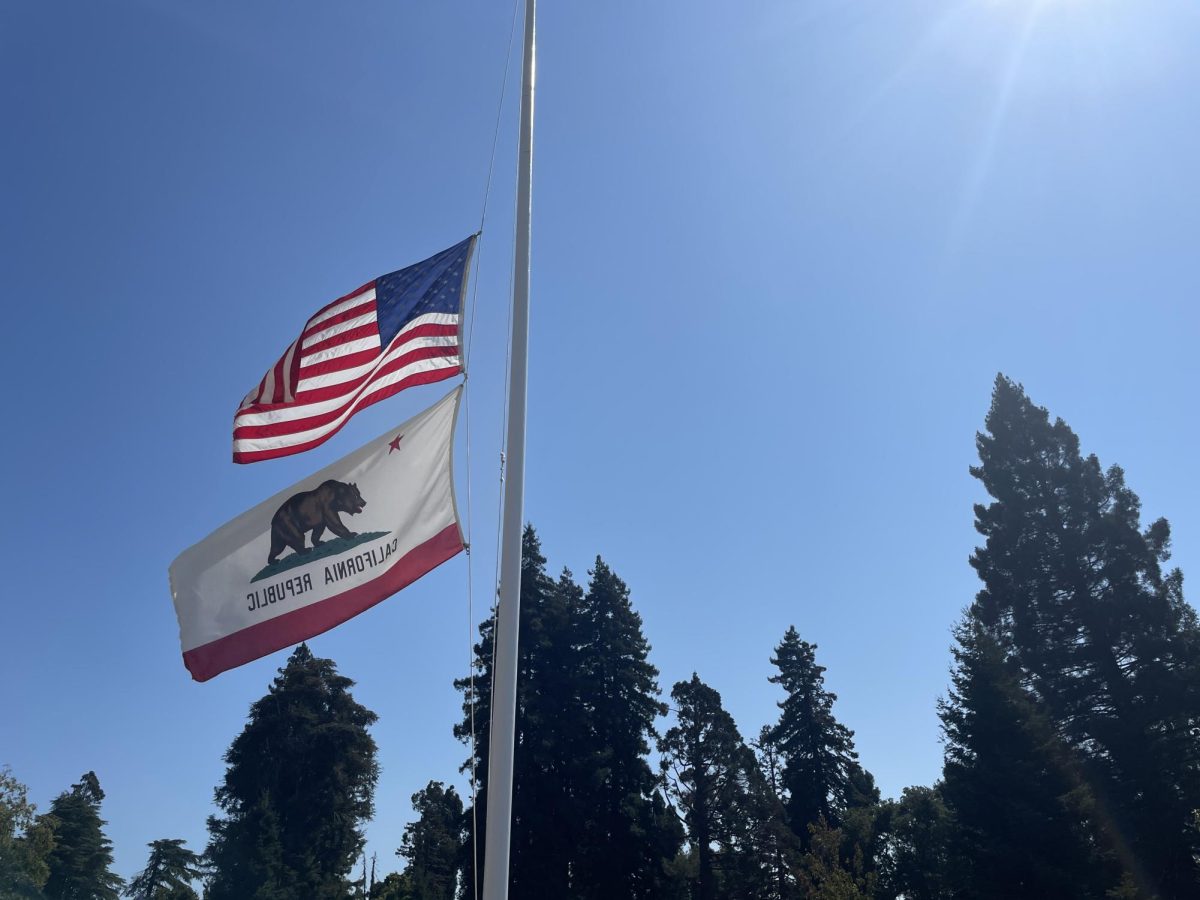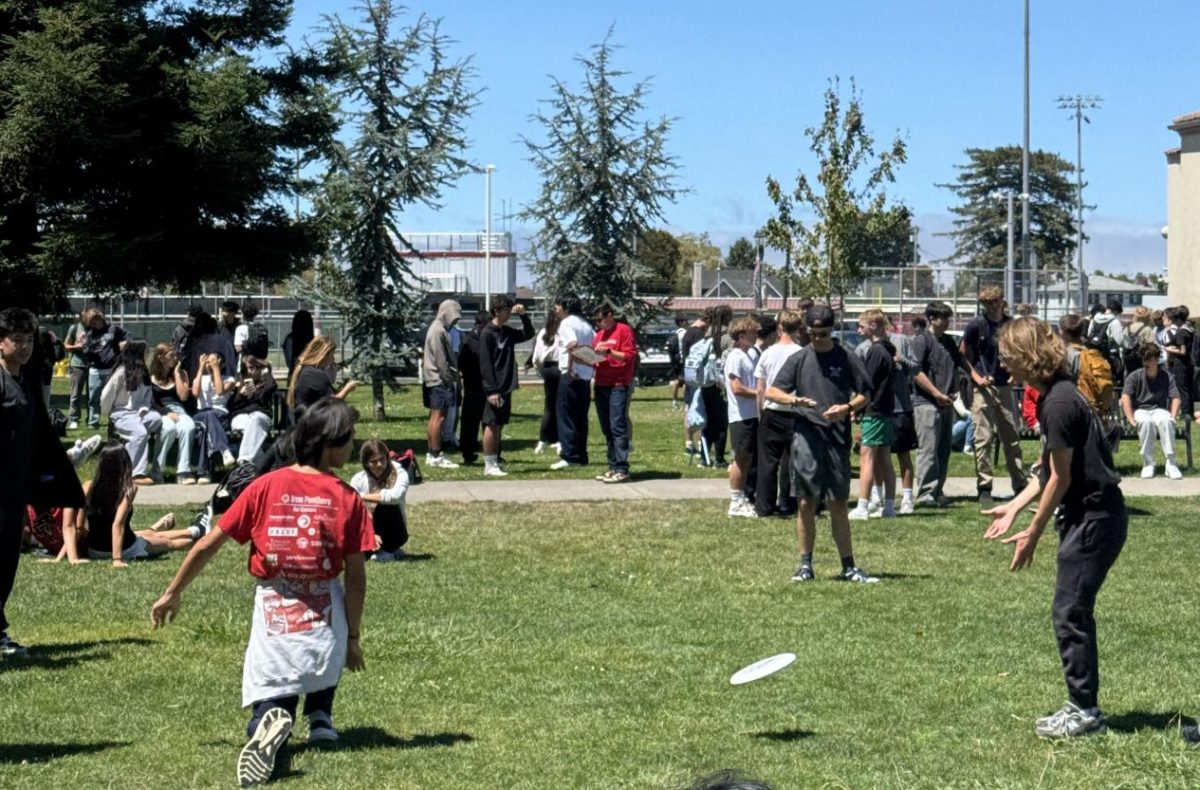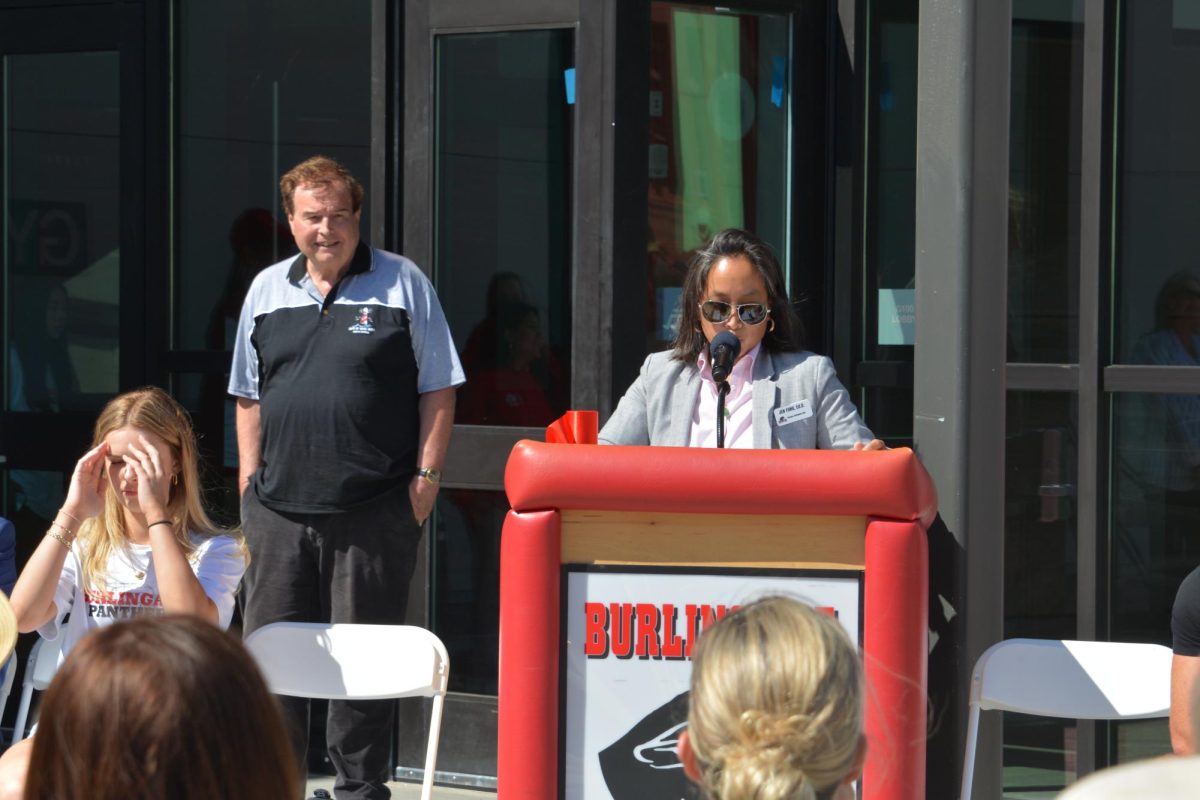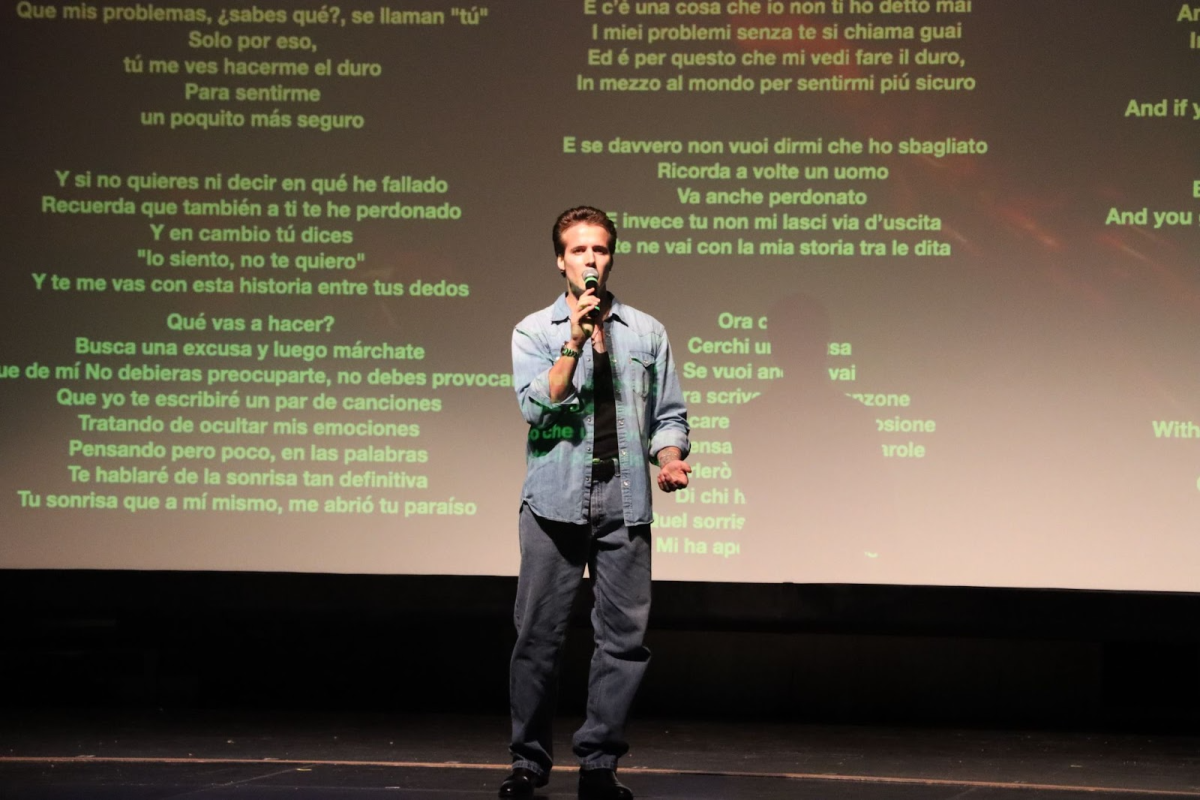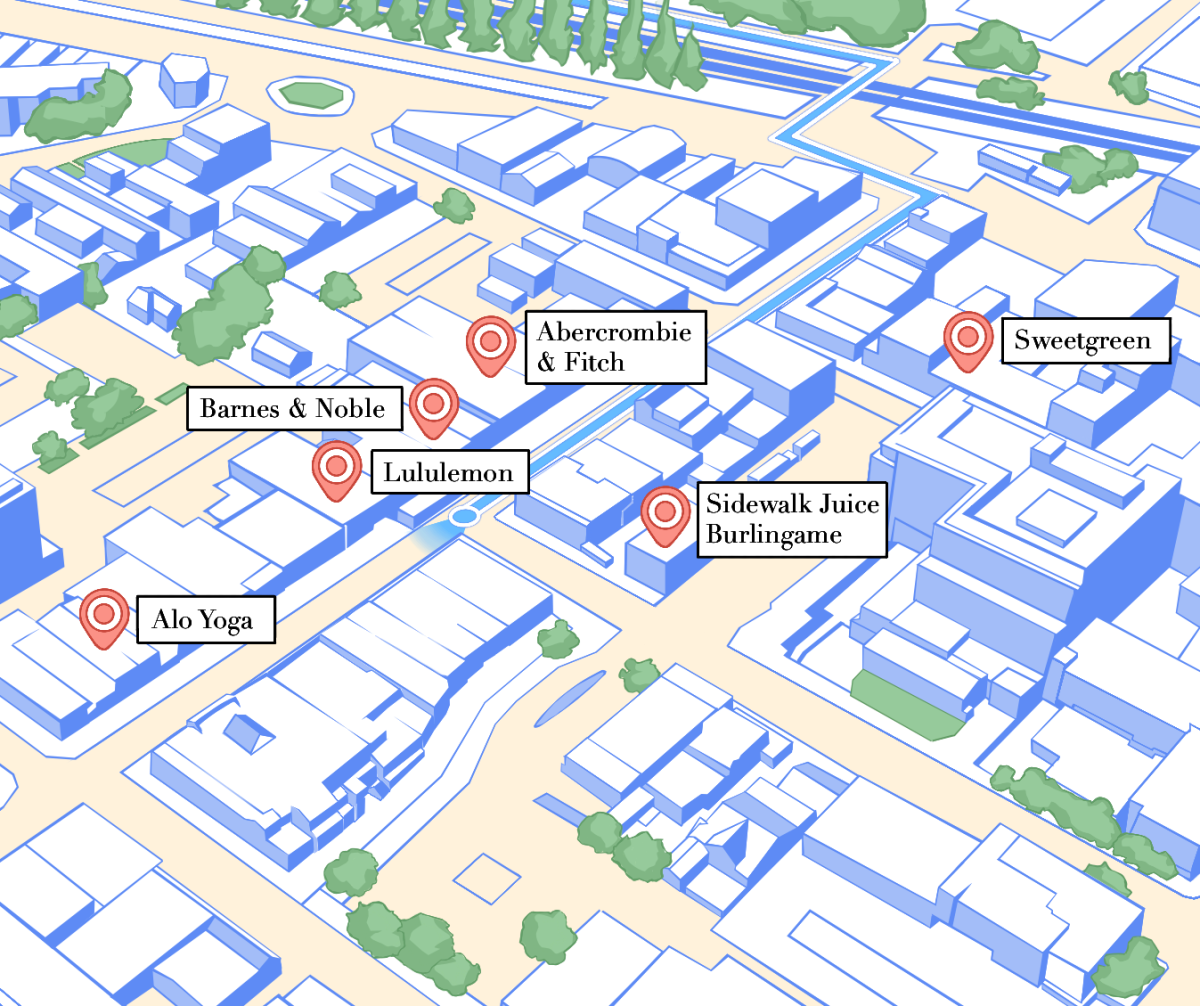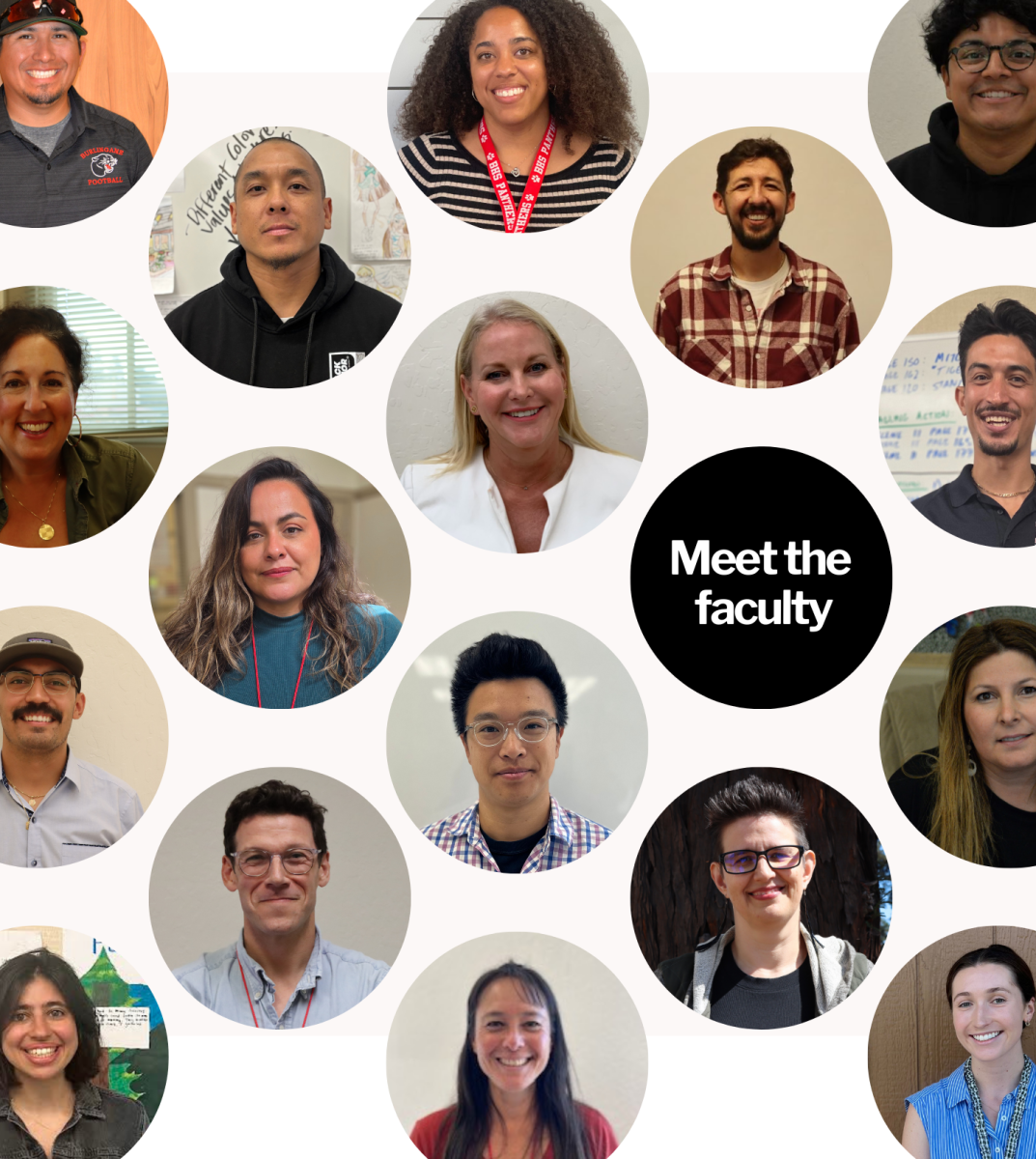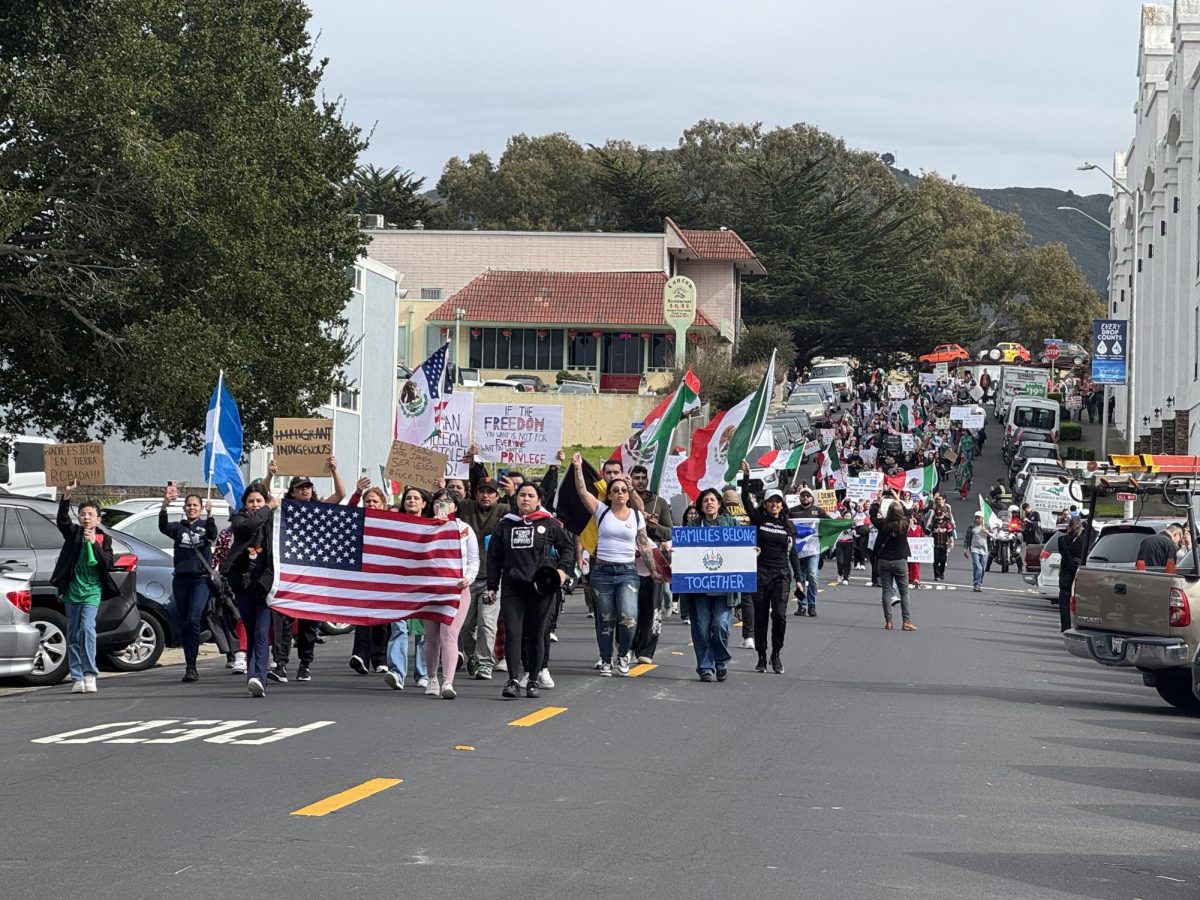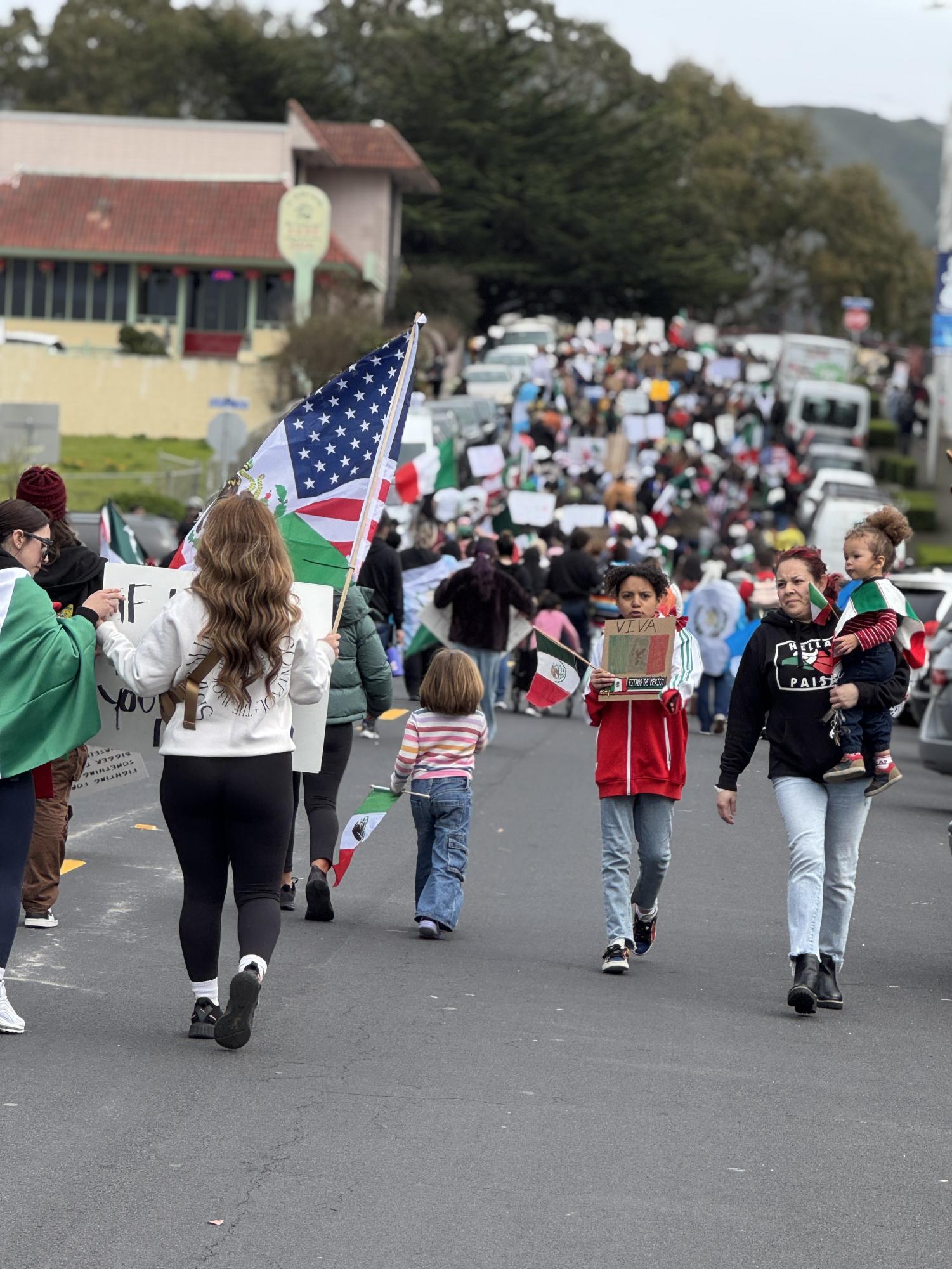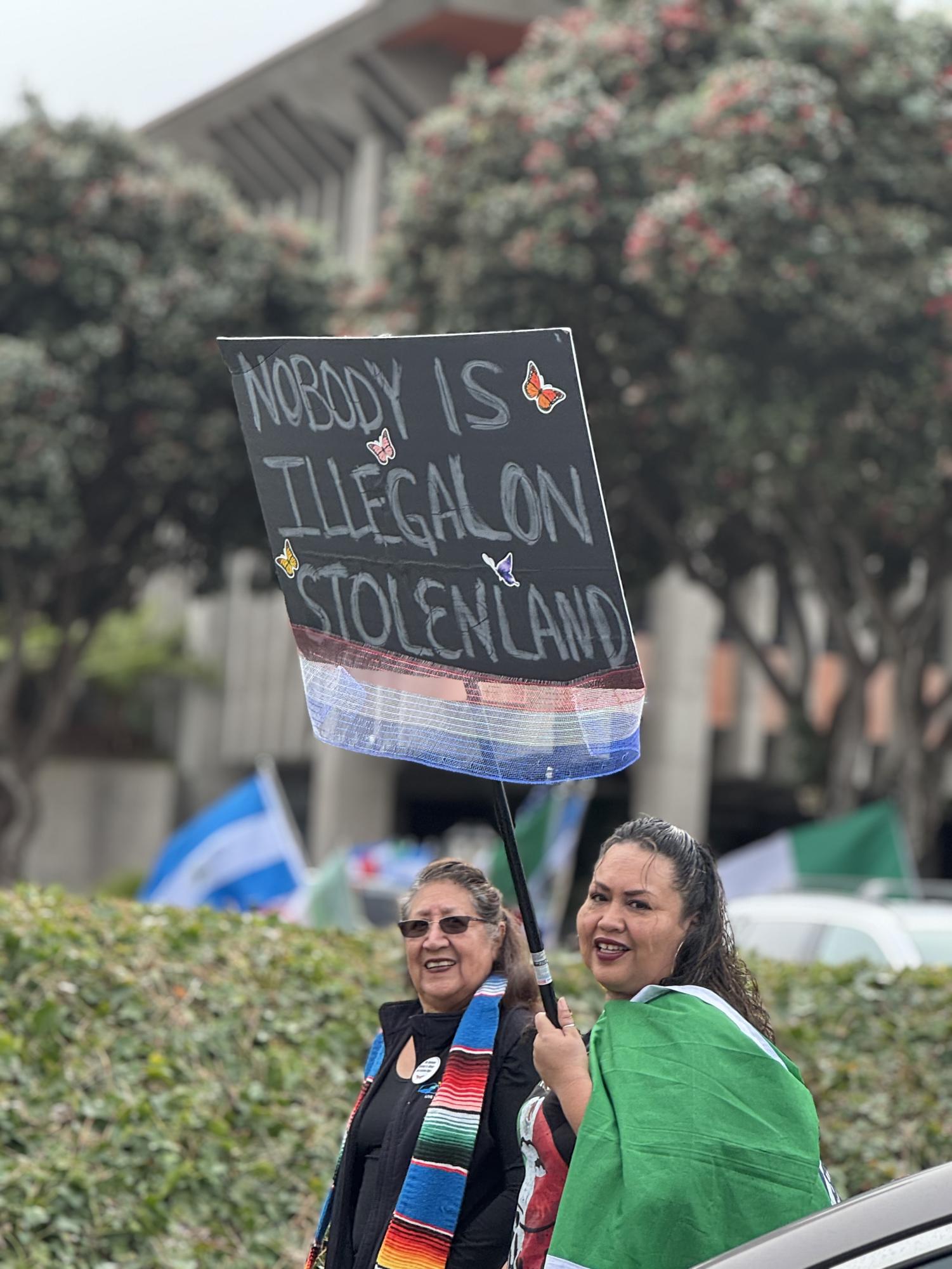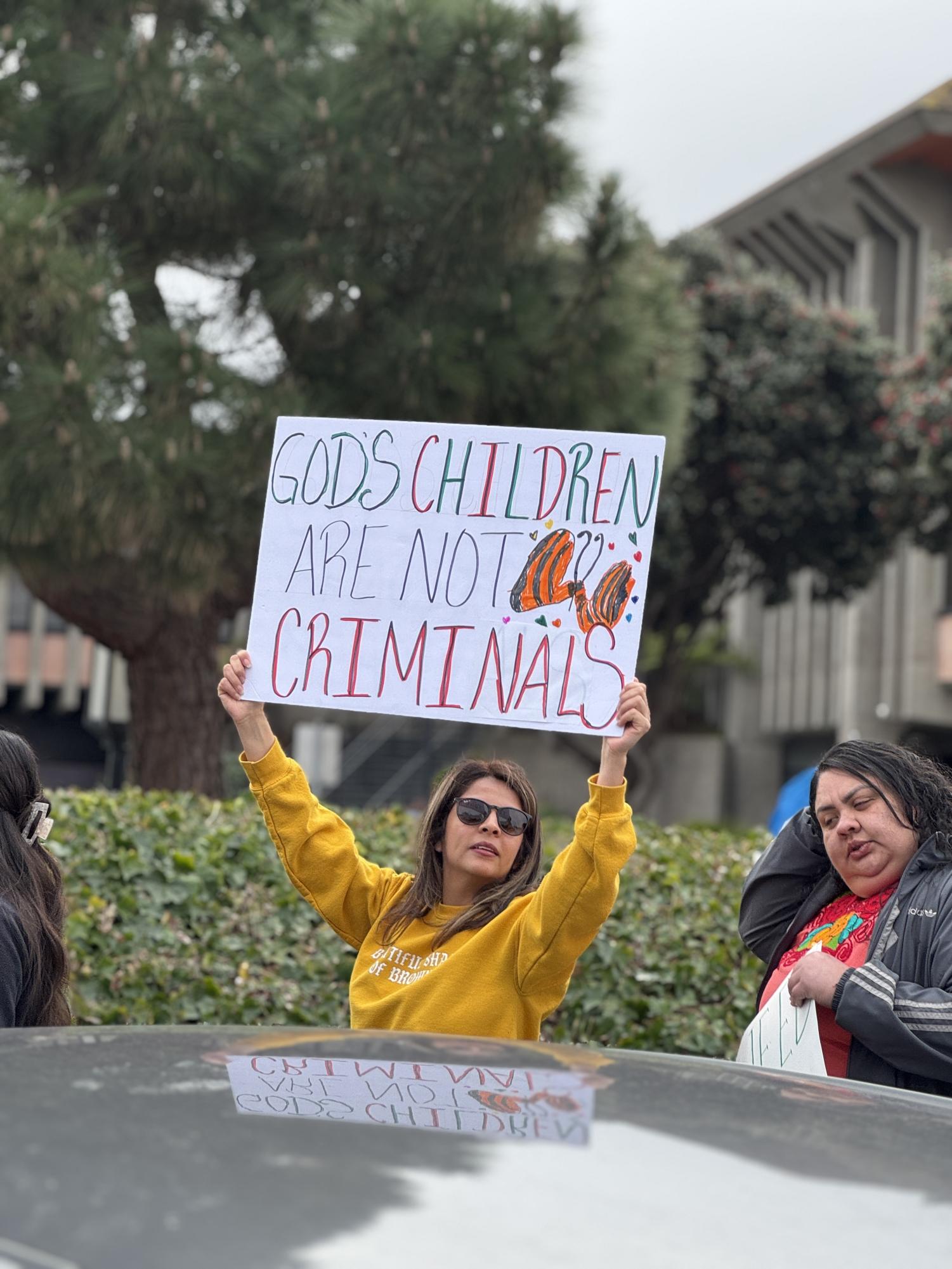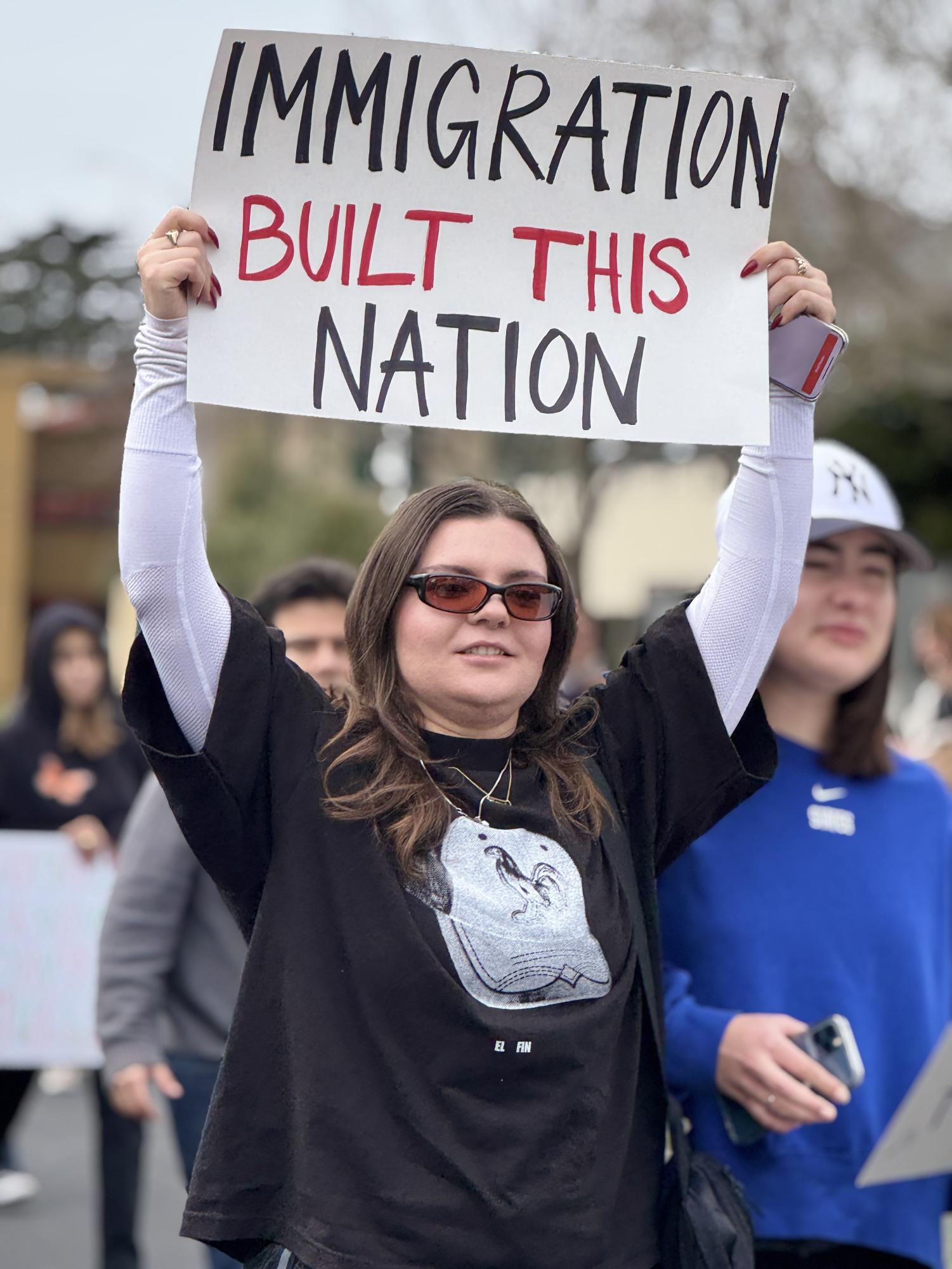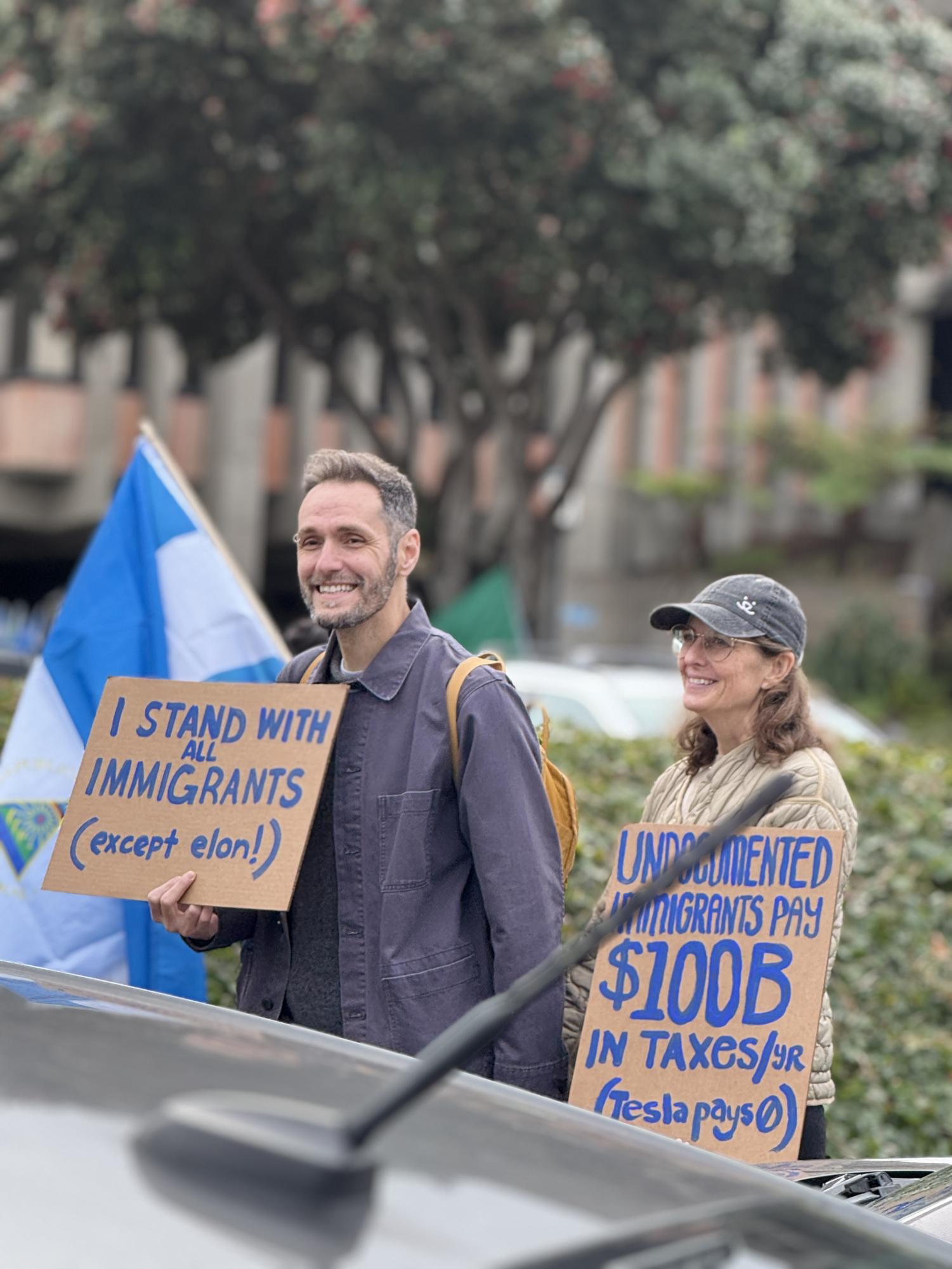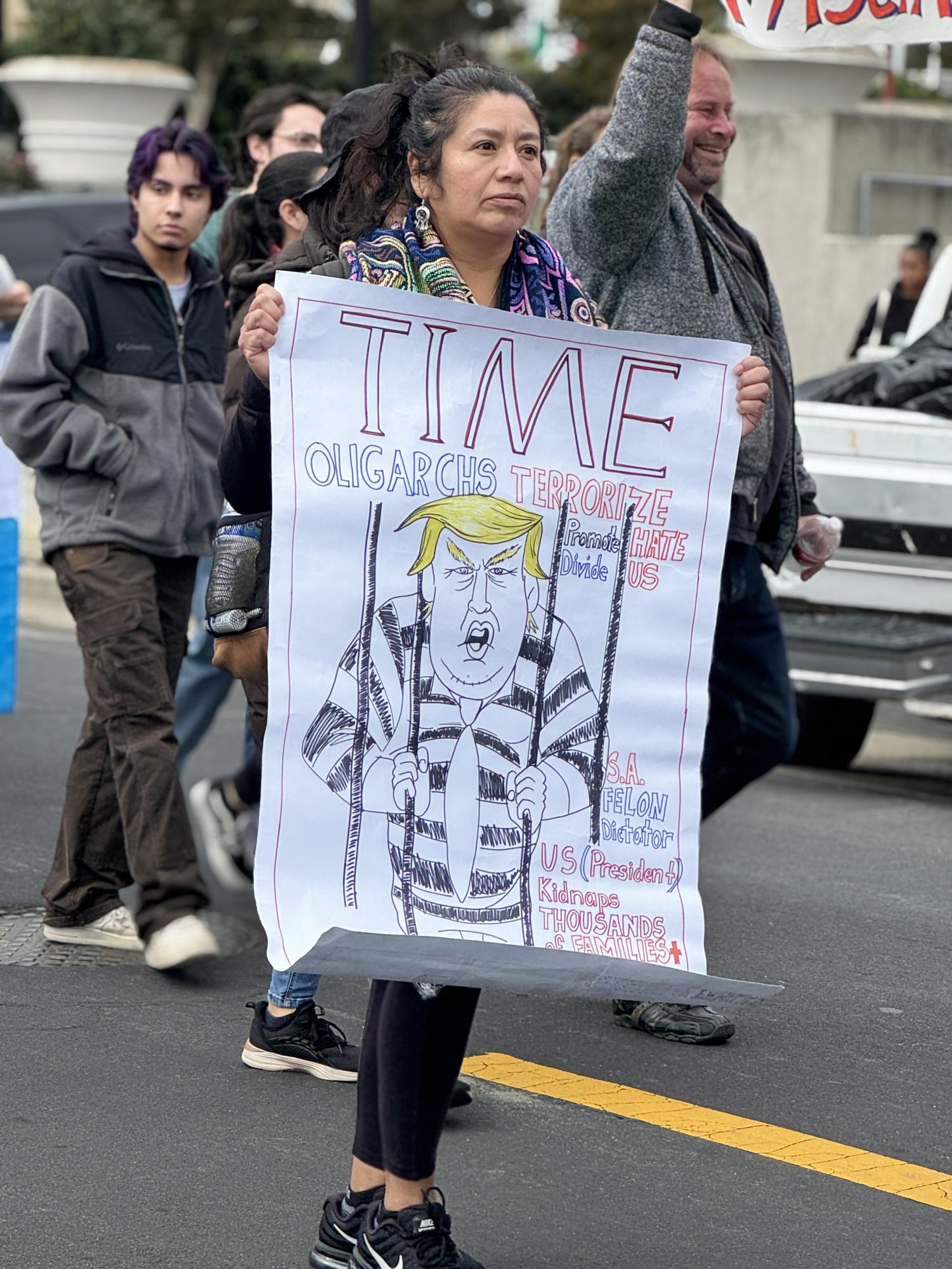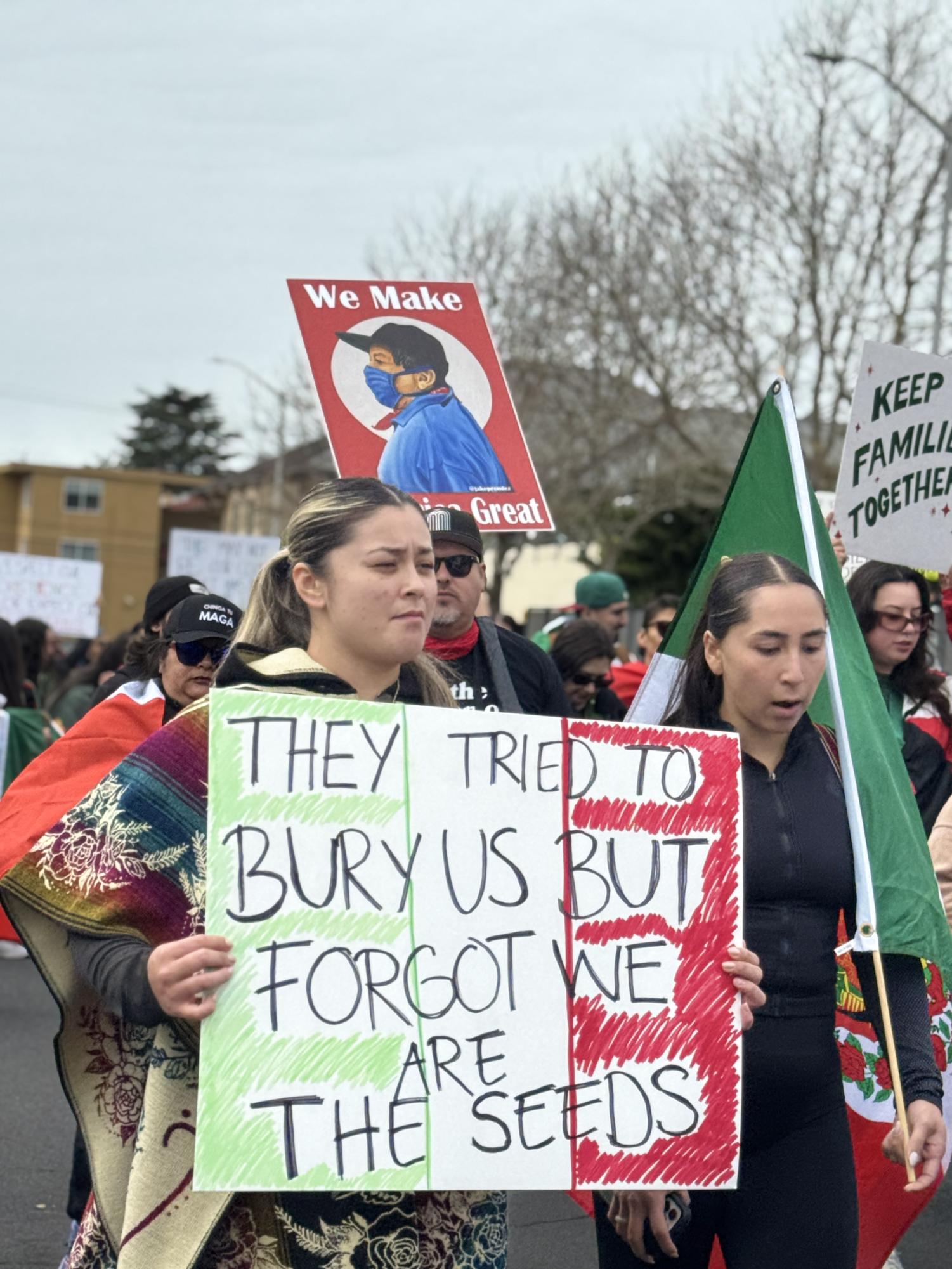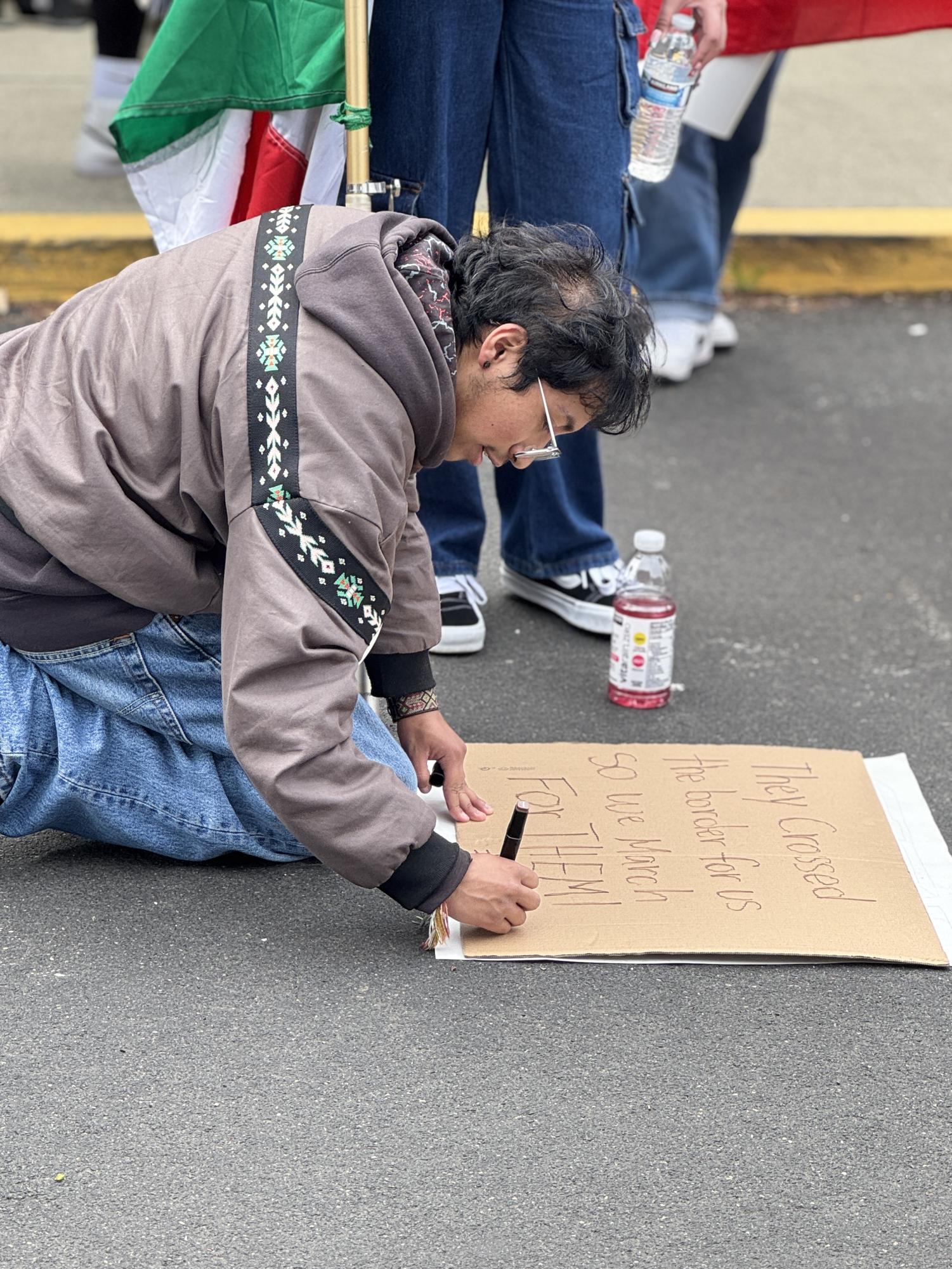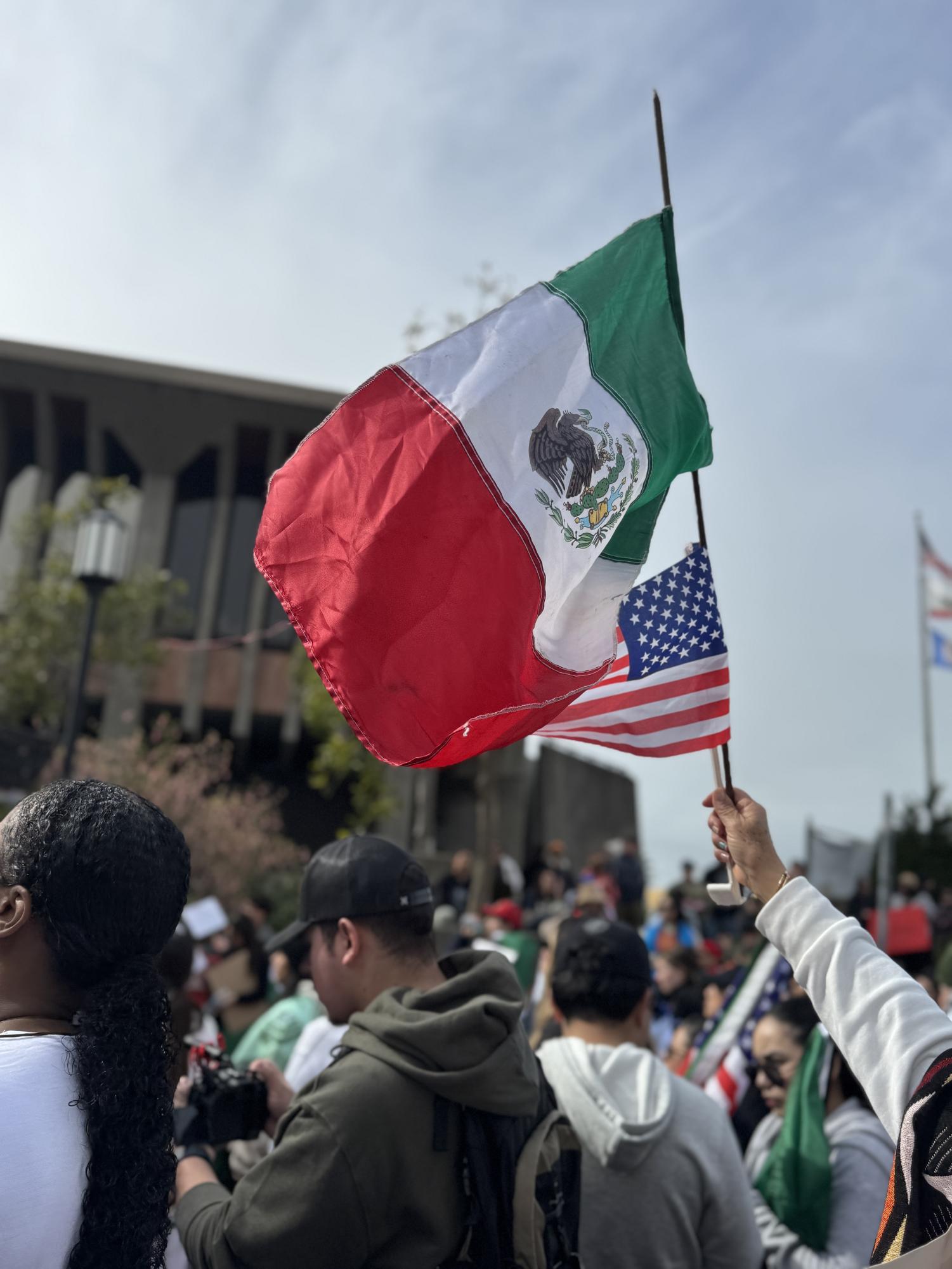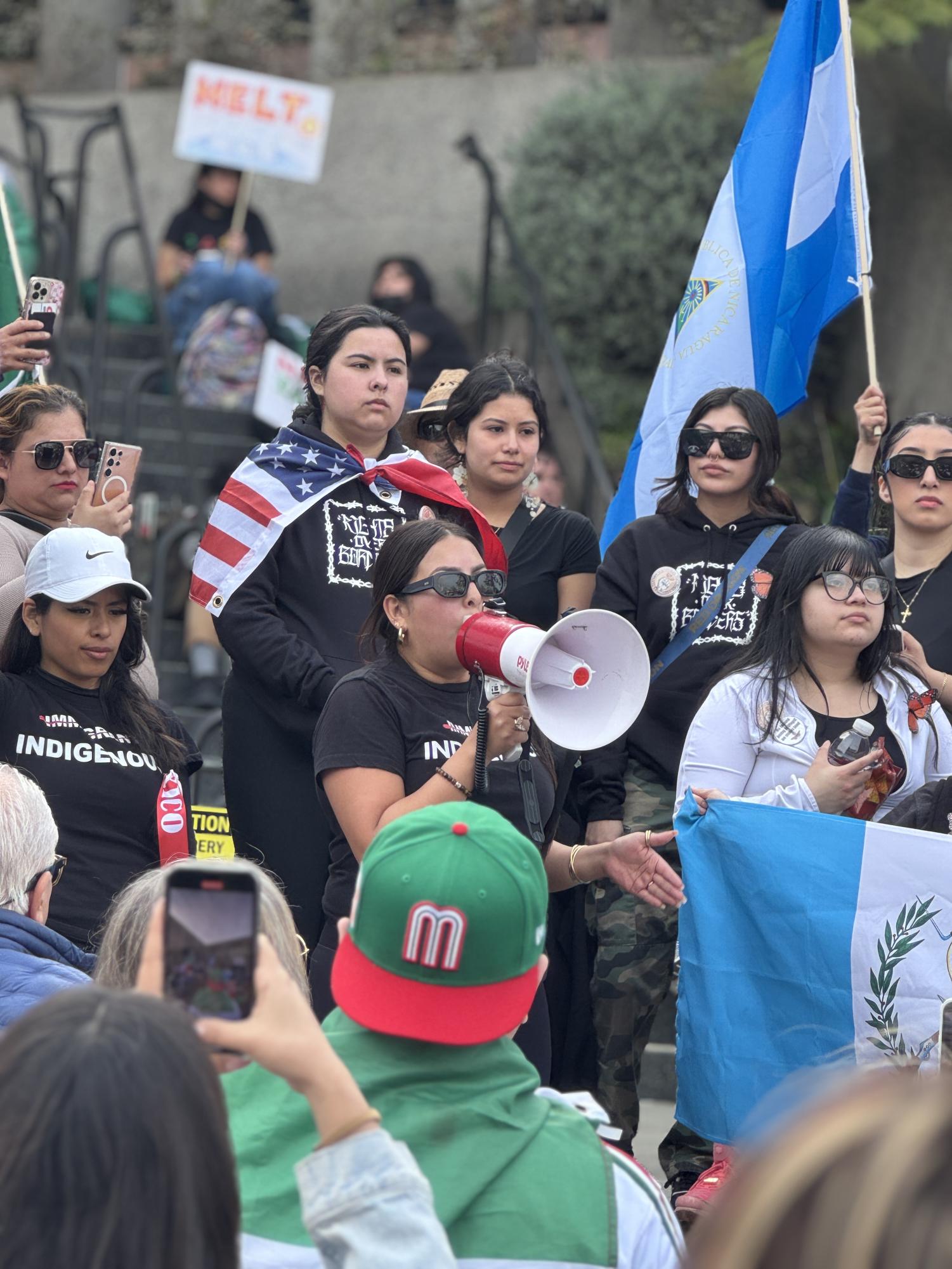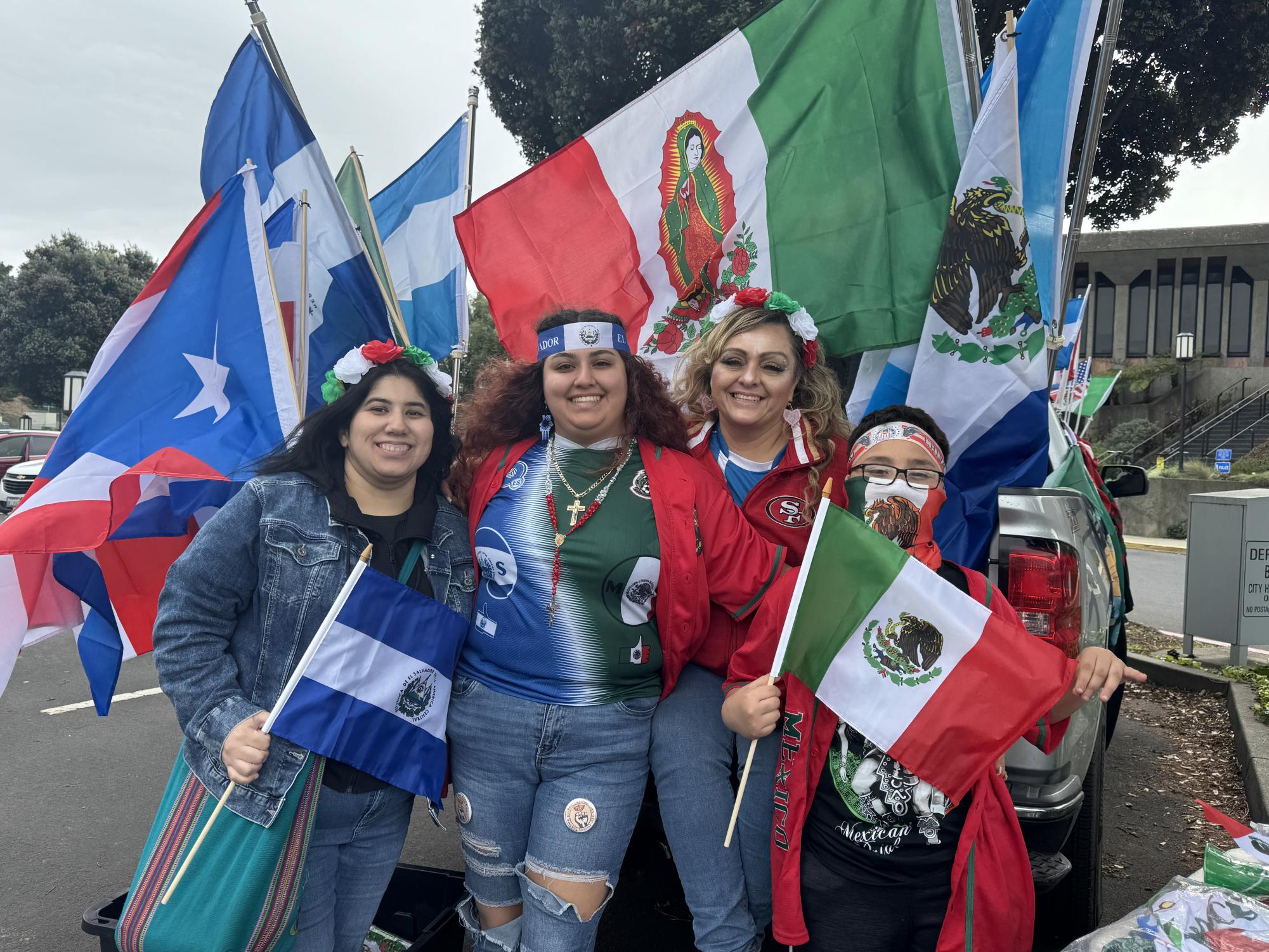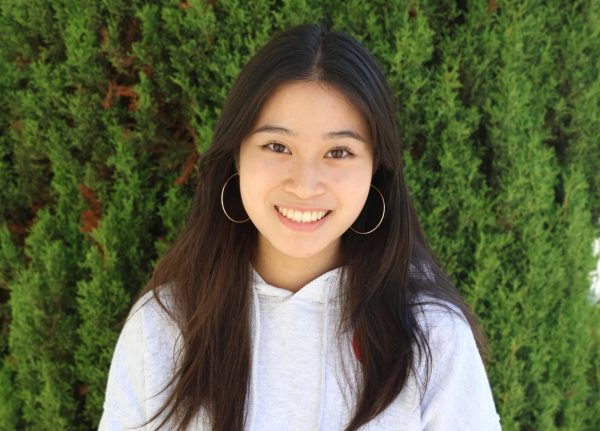“Enough is enough.”
This phrase appeared on protest signs and echoed through the streets on Sunday, Feb. 16 as over 100 demonstrators marched from San Mateo City Hall to San Francisco City Hall, covering more than 20 miles. Organized by Rights Over Borders, a local advocacy group for the immigrant community, the “Bay Area March Against Mass Deportations” drew residents from across San Mateo County, many of whom said they were marching not just for their own families but to “speak for those who can’t.”
“Our voices have been silent for too long,” said Mirtala Ochoa, an immigrant from El Salvador. “My hope is to get things moving for amnesty. I’m an immigrant, my husband’s an immigrant from Mexico, and we’re a very hard-working family. I want every hard-working undocumented immigrant who does not have a criminal record to get legalized immediately. They’re the hardest working people I know, and they deserve it.”
Since President Donald Trump began his second term in office, he has issued 10 executive orders aimed at changing U.S. immigration policies and has pledged to deport millions of immigrants, according to the American Immigration Council.
As the community braces for the impact of these policies, residents said they felt even more compelled to participate in the march. Burlingame student and junior Ryder Warren, who heard about the march through TikTok and Instagram, walked the entire 20-mile stretch for nearly 12 hours with his friends in support of the immigrant community.
“We shouldn’t be deporting people just because they want to come to this country to have a better life,” Warren said. “It’s unconstitutional. It’s racist. And I feel that a lot of people at our school don’t want to talk about [the ongoing situation] because they don’t want to stand out politically, so I think people should be more open and do what they can to help.”
Daniela Gonzalez, who also heard about the march through social media, emphasized the importance of showing up for her immigrant parents. She recalled the fear her family experienced during Trump’s first term in office.
“I want to support and give our people a voice,” Gonzalez said. “When I was younger, I remember the fear in my parent’s eyes, not being able to speak Spanish in public, and the hate that was spread during Trump’s first presidency. But we need to remember that nobody is illegal on stolen land. We’re doing our work, we’re paying our taxes, we’re not doing any harm to this country — we should have representation for that.”
Demonstrator Monica Granados echoed that sentiment and questioned the administration’s approach to immigration enforcement.
“I know the whole argument for the administration is to deport criminals, but I know more U.S. citizen criminals than I do immigrant criminals,” Granados said. “A lot of my relatives and family came here to get a chance at having a good life. Because they came from Mexico, they only made $1 a day there, so they’re ultimately here in America to just survive. They want safety, and that’s a basic human right.”
With reports of increased U.S. Immigration and Customs Enforcement (ICE) activity across the county, Ochoa said she hopes community members, especially the Latino community, can unite and continue fighting for their rights.
“The community needs to unite,” Ochoa said. “Even the Latinos are divided. They need to understand that there are a lot of other races who are undocumented and came here illegally, yet Latinos are being targeted and racially profiled by ICE. They’re arresting American citizens just because of how they look, and it’s horrible. It’s racist. We need to unite because maybe one day, your race could be next and get attacked.”
California, a sanctuary state with policies limiting cooperation between state agencies and federal immigration enforcement, is home to nearly 10.6 million immigrants, according to the Public Policy Institute of California. With Trump’s past conflicts with the California state government, some advocates fear the state may be particularly vulnerable to his administration’s deportation agenda.
Granados urges the public to see past media portrayals of immigrants and consider the real stories and struggles behind immigration policies.
“I don’t think the general public understands that all the negativities [towards the immigrant community] in the news is essentially propaganda being spread,” Granados said. “It’s all not true. We’re all here because we believe in our people and all these individuals here at the protest deserve these rights. I’m here to make sure our voices are heard, so I just hope that this protest inspires others to show up and speak up. Maybe eventually someone will listen to us and change our situation.”


